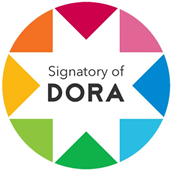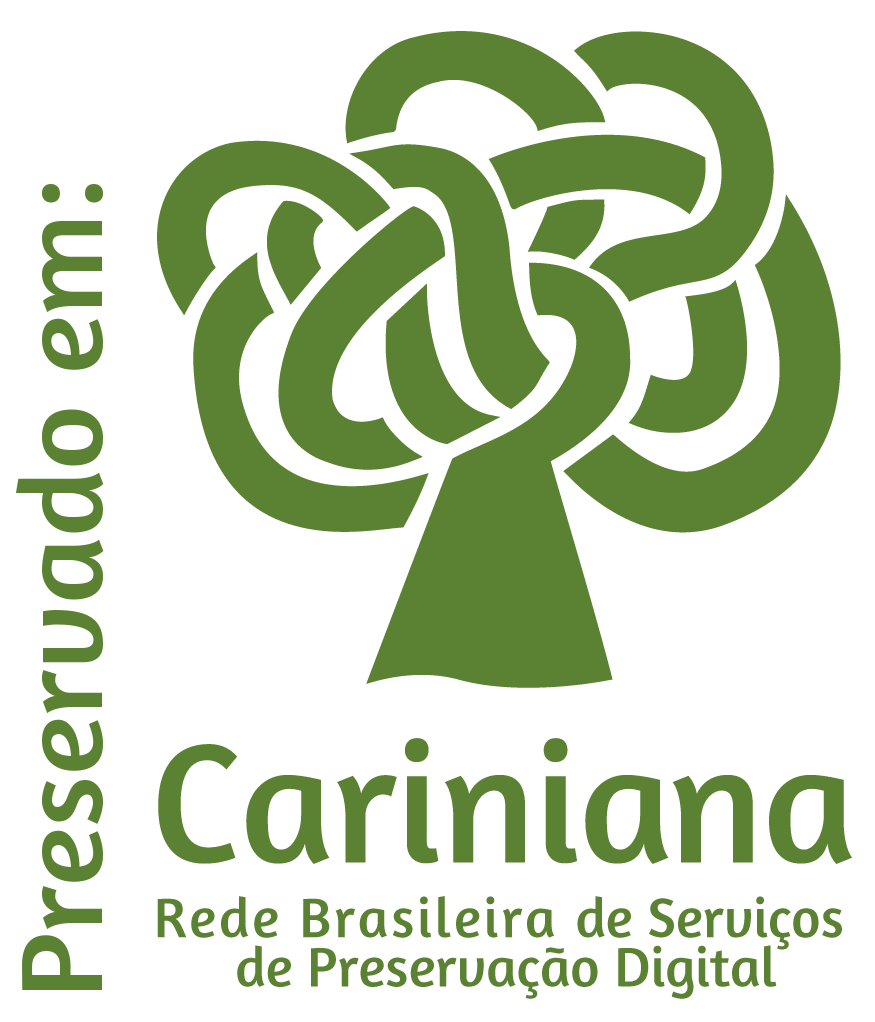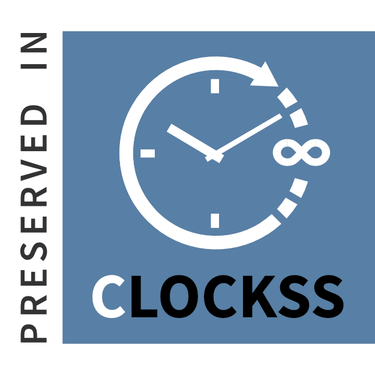Compromiso de los alumnos en la escuela primaria en el uso de Objetos de Aprendizaje
DOI:
https://doi.org/10.31417/educitec.v8.1965Palabras clave:
Proceso de Enseñanza-Aprendizaje, Tecnologia Educacional, Escuelas primariasResumen
Este artículo tiene como objetivo investigar si el uso de Objetos de Aprendizaje puede promover el compromiso en las actividades escolares en estudiantes de 1° y 2° grado. Usamos el concepto que considera la existencia de tres dimensiones del compromiso: compromiso conductual, compromiso cognitivo y compromiso emocional. Elenfoque metodológico utilizado fue la Investigación Acción y la recolección de datos se realizó a través de la observación de clases realizadas en un laboratorio de informática de una escuela municipal ubicada en el interior del Estado de São Paulo y de entrevistas con los profesores participantes. En general, los resultados indican que el uso de Objetos de Aprendizaje es una alternativa viable para promover la participación de los estudiantes en las actividades escolares. Sin embargo, a partir de los datos recolectados, no fue posible comprender las razones que llevaron algunos estudiantes a comportamientos no comprometidos, por ese motivo consideramos relevante realizar otras investigaciones que identifican los factores que resultan en comportamientos de desinterés y no comprometidos durante el uso de Objetos de Aprendizaje.
Descargas
Métricas
Citas
AUDINO, D. F.; NASCIMENTO, R. S. Objetos de Aprendizagem – Diálogos entre conceitos e uma nova proposição aplicada à educação. Revista Contemporânea de Educação, Rio de Janeiro, v. 5, n. 10, p. 128-148, jul/dez. 2010. Disponível em: https://revistas.ufrj.br/index.php/rce/article/view/1620/1468. Acesso em: 11 fev. 2022.
APPLETON, J. J. et al. Measuring cognitive and psychological engagement: Validation of the Student Engagement Instrument. Journal of School Psychology, [S.l.], v. 44, n. 5, p. 427-445, out. 2006. DOI: https://doi.org/10.1016/j.jsp.2006.04.002 DOI: https://doi.org/10.1016/j.jsp.2006.04.002
APPLETON, J. J.; CHRISTENSON, S. L.; FURLONG, M. l J. Student engagement with school: Critical conceptual and methodological issues of the construct. Psychology in the Schools, [S.l.], v. 45, n. 5, p. 369-386, abr. 2008. DOI: https://doi.org/10.1002/pits.20303. DOI: https://doi.org/10.1002/pits.20303
BRASIL. Ministério da Saúde. Conselho Nacional de Saúde. Resolução nº 510, de 7 de abril de 2016. Trata sobre as diretrizes e normas regulamentadoras de pesquisa em ciências humanas e sociais. Diário Oficial da União, Brasília, DF, 24 maio 2016. Disponível em: http://conselho.saude.gov.br/resolucoes/2016/Reso510.pdf. Acesso em: 11 fev. 2022.
BULEGON, A. M.; MUSSOI, E. M. Pressupostos pedagógicos de Objeto de Aprendizagem. In: TAROUCO, L. B. M. R.; COSTA, V. M.; ÁVILA, B. G.; BEZ, M. R.; SANTOS, E. F. (orgs.) Objetos de aprendizagem: teoria e prática. Porto Alegre: Evangraf, 2014. p. 54-75. Disponível em: https://lume.ufrgs.br/handle/10183/102993. Acesso em: 11 fev. 2022.
CHIZZOTTI, A. Pesquisa qualitativa em Ciências Humanas e Sociais. 3. ed. Petrópolis: Vozes, 2006.
ESTELL, D. B.; PERDUE, N. H. Social support and behavioral and affective school engagement: The effects of peers, parents, and teachers. Psychology in the Schools, [S.l.], v. 50, n. 4, p. 325-339, fev. 2013. DOI: https://doi.org/10.1002/pits.21681. DOI: https://doi.org/10.1002/pits.21681
FERREIRA, H.; CASSIOLATO, M.; GONZALEZ, R. Uma experiência de desenvolvimento metodológico para avaliação de programas: o modelo lógico do Programa Segundo Tempo. Brasília: Ipea, 2009. Disponível em: https://lume.ufrgs.br/handle/10183/40821. Acesso em: 11 fev. 2022.
FINN, J. D.; ROCK, D. A. Academic success among students at risk for school failure. Journal of Applied Psychology, Washington, v. 82, n. 2, p. 221-234, abr. 1997. DOI: https://doi.org/10.1037/0021-9010.82.2.221. DOI: https://doi.org/10.1037/0021-9010.82.2.221
FINN, J. D.; ZIMMER, K. S. Student engagement: What Is It? Why Does It Matter?. In: CHRISTENSON, S. L.; RESCHLY, A. L.; WYLIE, C. (eds.). Handbook of Research on Student Engagement. New York: Springer, 2012. p. 97-132. DOI: https://doi.org/10.1007/978-1-4614-2018-7_5 DOI: https://doi.org/10.1007/978-1-4614-2018-7_5
FREDRICKS, J. Behavioral engagement in learning. In: HATTIE, J.; ANDERMAN, E. M. (eds.). International guide to student achievement. New York: Routledge, 2013. p. 42-44. DOI: https://doi.org/10.4324/9780203850398 DOI: https://doi.org/10.4324/9780203850398
FREDRICKS, J. A.; BLUMENFELD, P. C.; PARIS, A. H. School Engagement: Potential of the Concept, State of the Evidence. Review of Educational Research, Los Angeles, v. 74, n. 1, p. 59-109, mar. 2004. DOI: https://doi.org/10.3102/00346543074001059. DOI: https://doi.org/10.3102/00346543074001059
FREDRICKS, J. A.; MCCOLSKEY, W. The measurement of student engagement: a comparative analysis of various methods and student self-report instruments. In: CHRISTENSON, S. L.; RESCHLY, A. L.; WYLIE, C. (eds.). Handbook of Research on Student Engagement. New York: Springer, 2012. p. 763-782. DOI: https://doi.org/10.1007/978-1-4614-2018-7_37. DOI: https://doi.org/10.1007/978-1-4614-2018-7_37
FROILAND, J. M.; DAVISON, M. L.; WORRELL, F. C. Aloha teachers: teacher autonomy support promotes Native Hawaiian and Pacific Islander students’ motivation, school belonging, course-taking and math achievement. Social Psychology of Education, [S.l.], v. 19, n. 4, p. 879-894, dez. 2016. DOI: https://doi.org/10.1007/s11218-016-9355-9. DOI: https://doi.org/10.1007/s11218-016-9355-9
FROILAND, J. M.; WORRELL, F. C. Intrinsic motivation, learning goals, engagement, and achievement in a diverse high school. Psychology in the Schools, [S.l.], v. 53, n. 3, p. 321-336, jan. 2016. DOI: https://doi.org/10.1002/pits.21901. DOI: https://doi.org/10.1002/pits.21901
GREENE, B. A. Measuring Cognitive Engagement With Self-Report Scales: Reflections From Over 20 Years of Research. Educational Psychologist, [S.l.], v. 50, n. 1, p. 14-30, jan. 2015. DOI: https://doi.org/10.1080/00461520.2014.989230. DOI: https://doi.org/10.1080/00461520.2014.989230
HANDELSMAN, M. M., et al. A measure of college student course engagement. The Journal of Educational Research, [S.l.], v. 98, n.3, p.184-192, ago. 2005. DOI: https://doi.org/10.3200/JOER.98.3.184-192. DOI: https://doi.org/10.3200/JOER.98.3.184-192
HARRIS, L. R. A phenomenographic investigation of teacher conceptions of student engagement in learning. The Australian Educational Researcher, [S.l.], v. 35, n. 1, p. 57-79, abr. 2008. DOI: https://doi.org/10.1007/BF03216875. DOI: https://doi.org/10.1007/BF03216875
INDIANA UNIVERSITY. Voices of Students on Engagement: A Report on the 2006 High School Survey of Student Engagement. [Bloomington: IU], 2007. Disponível em: https://files.eric.ed.gov/fulltext/ED495758.pdf. Acesso em: 11 fev. 2022.
LEI, H.; CUI, Y.; ZHOU, W. Relationships between student engagement and academic achievement: A meta-analysis. Social Behavior and Personality: an international journal, New Zealand, v. 46, n. 3, p. 517-528, mar. 2018. DOI: https://doi.org/10.2224/sbp.7054. DOI: https://doi.org/10.2224/sbp.7054
LI, Y.; LERNER, R. M. Interrelations of behavioral, emotional, and cognitive school engagement in high school students. Journal of Youth and Adolescence, [S.l.], v. 42, n. 1, p. 20-32, nov. 2013. DOI: https://doi.org/10.1007/s10964-012-9857-5. DOI: https://doi.org/10.1007/s10964-012-9857-5
MAINARDES, J.; CARVALHO, I. C. M. Autodeclaração de princípios e de procedimentos éticos na pesquisa em Educação. In: ANPED. Associação Nacional de Pós-Graduação e Pesquisa em Educação. (org.). Ética e pesquisa em Educação: subsídios. Rio de Janeiro: ANPEd, 2019. p. 129-132. Disponível em: https://www.anped.org.br/sites/default/files/images/etica_e_pesquisa_em_educacao_-_2019_17_jul.pdf. Acesso em: 11 fev. 2022.
MARKS, H. M. Student Engagement in Instructional Activity: Patterns in the Elementary, Middle, and High School Years. American Educational Research Journal, [S.l.], v. 37, n. 1, p. 153-184, mar. 2000. DOI: https://doi.org/10.3102/00028312037001153 DOI: https://doi.org/10.3102/00028312037001153
MARTIN, A. J.; GINNS, P.l; PAPWORTH, B. Motivation and engagement: Same or different? Does it matter?. Learning and Individual Differences, [S.l.], v. 55, p. 150-162, abr. 2017. DOI: https://doi.org/10.1016/j.lindif.2017.03.013. DOI: https://doi.org/10.1016/j.lindif.2017.03.013
MARTINS, J. B. Observação participante: uma abordagem metodológica para a psicologia escolar. Semina: Ciências, Sociedade e Humanidade, Londrina, v. 17, n. 3, p. 266-273, set. 1996. DOI: https://doi.org/10.5433/1679-0383.1996v17n3p266. DOI: https://doi.org/10.5433/1679-0383.1996v17n3p266
NESI, T. L. et al. Objetos de aprendizagem de matemática: um panorama do que diz em alguns estudos no Brasil. RENOTE. Porto Alegre, v. 17, n. 1, p. 557–566, 2019. DOI: https://doi.org/10.22456/1679-1916.96516. DOI: https://doi.org/10.22456/1679-1916.96016
PEKRUN, R.; LINNENBRINK-GARCIA, L. Academic emotions and student engagement. In: CHRISTENSON, S. L.; RESCHLY, A. L.; WYLIE, C. (eds.). Handbook of Research on Student Engagement. New York: Springer, 2012. p. 259 -282. DOI: https://doi.org/10.1007/978-1-4614-2018-7_12. DOI: https://doi.org/10.1007/978-1-4614-2018-7_12
PIAGET, J. Relações entre a afetividade e a inteligência no desenvolvimento mental da criança. Rio de Janeiro: Wak, 2014.
PINTRICH, P. R.; SCHUNK, D. H. Motivation in education: Theory, research, and applications. 2 ed. New Jersey: Prentice Hall, 2002.
REEVE, J. A Self-determination Theory Perspective on student engagement. In: CHRISTENSON, S. L.; RESCHLY, A. L.; WYLIE, C. (eds.). Handbook of Research on Student Engagement. New York: Springer, 2012. p. 149-172. DOI: https://doi.org/10.1007/978-1-4614-2018-7_7. DOI: https://doi.org/10.1007/978-1-4614-2018-7_7
RESCHLY, A. L.; CHRISTENSON, S. L. Jingle, jangle, and conceptual haziness: Evolution and future directions of the engagement construct. In: CHRISTENSON, S. L.; RESCHLY, A. L.; WYLIE, C. (eds.). Handbook of Research on Student Engagement. New York: Springer, 2012. p. 3-21. DOI: https://doi.org/10.1007/978-1-4614-2018-7_1. DOI: https://doi.org/10.1007/978-1-4614-2018-7_1
ROBLYER, M. D. Educational technology research that makes a difference: Series introduction. Contemporary Issues in Technology and Teacher Education, [S.l.], v. 5, n. 2, p. 192-201, jun. 2005. Disponível em: https://citejournal.org/wp-content/uploads/2016/04/v5i2seminal1.pdf. Acesso em: 11 fev. 2022.
ROESER, R. W.; ECCLES, J. S. Adolescents' perceptions of middle school: Relation to longitudinal changes in academic and psychological adjustment. Journal of research on adolescence, [S.l.], v. 8, n. 1, p. 123-158, jan. 1998. Disponível em: https://www.tandfonline.com/doi/abs/10.1207/s15327795jra0801_6. Acesso em: 11 fev. 2022. DOI: https://doi.org/10.1207/s15327795jra0801_6
RYAN, R. M.; DECI, E. L. Toward a social psychology of assimilation: Self-Determination Theory in Cognitive Development and Education. In: SOKOL, B. W.; GROUZET, F. M. E.; MULLER, U. (eds.). Self-regulation and autonomy: Social and developmental dimensions of human conduct. New York: Cambridge University Press, 2013. p. 191-207. DOI: https://doi.org/10.1017/CBO9781139152198.014. DOI: https://doi.org/10.1017/CBO9781139152198.014
SALMELA?ARO, K.; UPADYAYA, K. School burnout and engagement in the context of demands-resources model. British journal of educational psychology, [S.l.], v. 84, n. 1, p. 137-151, mar. 2014. DOI: https://doi.org/10.1111/bjep.12018. DOI: https://doi.org/10.1111/bjep.12018
SCHUNK, D. H.; MULLEN, C. A. Self-efficacy as an engaged learner. In: CHRISTENSON, S. L.; RESCHLY, A. L.; WYLIE, C. (eds.). Handbook of Research on Student Engagement. New York: Springer, 2012. p. 219-236. DOI: https://doi.org/10.1007/978-1-4614-2018-7_10. DOI: https://doi.org/10.1007/978-1-4614-2018-7_10
SKINNER, E. et al. Engagement and disaffection in the classroom: Part of a larger motivational dynamic?. Journal of educational psychology, [S.l.], v. 100, n. 4, p. 765-781, nov. 2008. DOI: https://doi.apa.org/doi/10.1037/a0012840. DOI: https://doi.org/10.1037/a0012840
SKINNER, E. A.; PITZER, J. R. Developmental Dynamics of Student Engagement, Coping, and Everyday Resilience. In: CHRISTENSON, S. L.; RESCHLY, A. L.; WYLIE, C. (eds.). Handbook of Research on Student Engagement. New York: Springer, 2012. p. 21-44. DOI: https://doi.org/10.1007/978-1-4614-2018-7_2. DOI: https://doi.org/10.1007/978-1-4614-2018-7_2
STELKO-PEREIRA, A. C.; VALLE, J. E.; WILLIAMS, L. C. A. Escala de Engajamento Escolar: análise de características psicométricas. Avaliação psicológica, Itatiba, v.14, n.2, p. 207-212, ago. 2015. DOI: https://doi.org/10.15689/ap.2015.1402.05. DOI: https://doi.org/10.15689/ap.2015.1402.05
THIOLLENT, M. J. M.; COLETTE, M. M. Pesquisa-ação, formação de professores e diversidade. Acta Scientiarum. Human and Social Sciences, Maringá, v. 36, n. 2, p. 207-216, dez. 2014. DOI: https://doi.org/10.4025/actascihumansoc.v36i2.23626. DOI: https://doi.org/10.4025/actascihumansoc.v36i2.23626
VEIGA, F. H. Envolvimento dos alunos na escola: Elaboração de uma nova escala de avaliação. International Journal of Developmental and Educational Psychology, Badajoz, v. 1, n. 1, p. 441-450, abr. 2013. Disponível em: https://www.redalyc.org/articulo.oa?id=349852058036. Acesso em: 11 fev. 2022.
VOELKL, K. E. School identification. In: CHRISTENSON, S. L.; RESCHLY, A. L.; WYLIE, C. (eds.). Handbook of Research on Student Engagement. New York: Springer, 2012. p.193-219. DOI: https://doi.org/10.1007/978-1-4614-2018-7_9. DOI: https://doi.org/10.1007/978-1-4614-2018-7_9
WANG, M.; WILLETT, J. B.; ECCLES, J. S. The assessment of school engagement: Examining dimensionality and measurement invariance by gender and race/ethnicity. Journal of School Psychology, [S.l.], v. 49, n. 4, p. 465-480, ago. 2011. DOI: https://doi.org/10.1016/j.jsp.2011.04.001. DOI: https://doi.org/10.1016/j.jsp.2011.04.001
Descargas
Publicado
Cómo citar
Número
Sección
Licencia

Esta obra está bajo una licencia internacional Creative Commons Atribución 4.0.
Esta obra está autorizada bajo una Licencia Internacional Creative Commons Attribution 4.0.
Esta licencia permite a otros compartir, copiar, redistribuir material en cualquier medio o formato, adaptar, remezclar, transformar y desarrollar el material en base a su trabajo, aunque sea comercialmente, dando el debido crédito y proporcionando un enlace a la licencia.
Los artículos publicados son propiedad y plena responsabilidad de sus autores, quienes podrán disponer de ellos para su posterior publicación, siempre incluida la edición original, y la Revista EDUCITEC no tiene responsabilidad legal alguna por su contenido.
Aceptado 2022-08-18
Publicado 2022-08-22

















